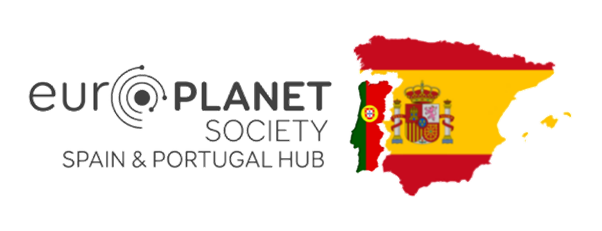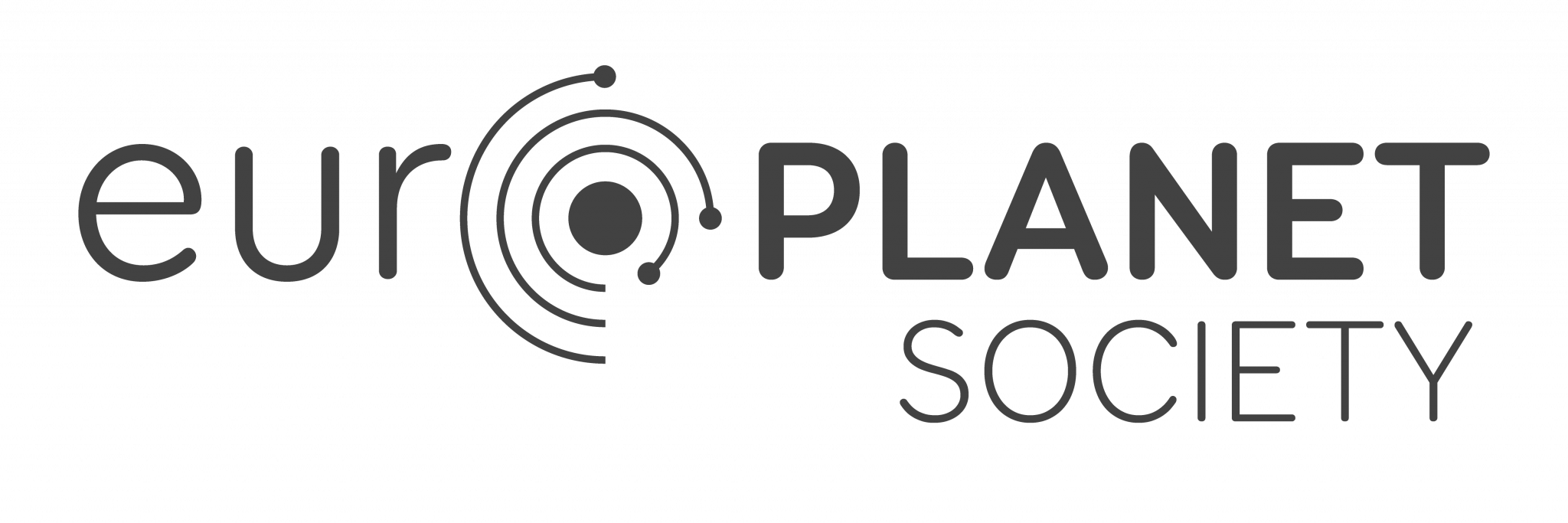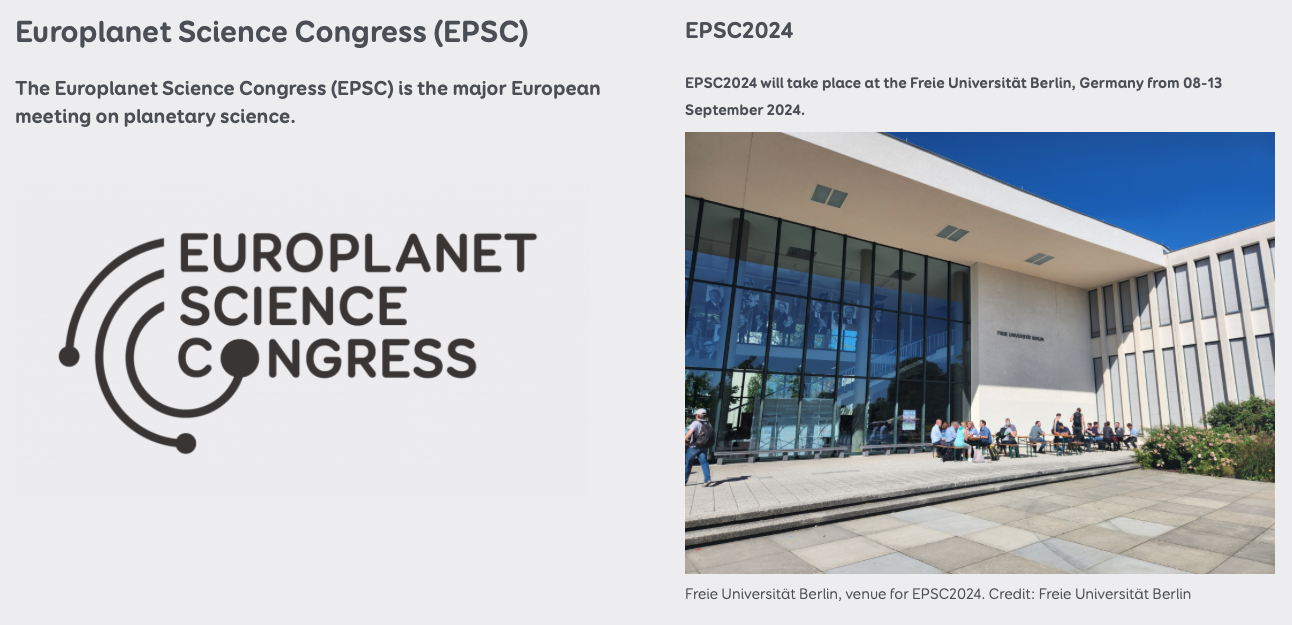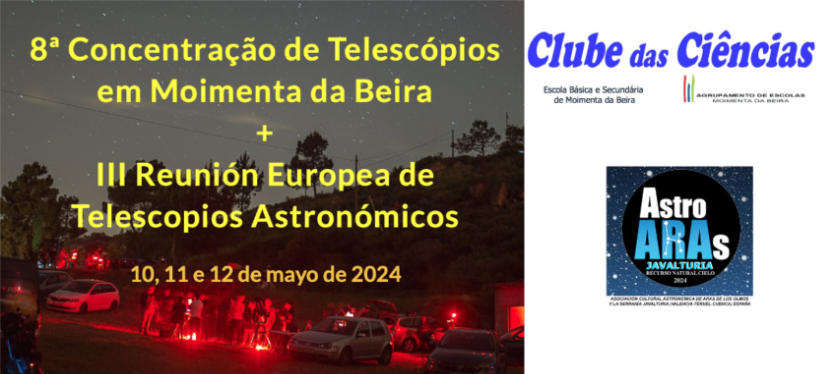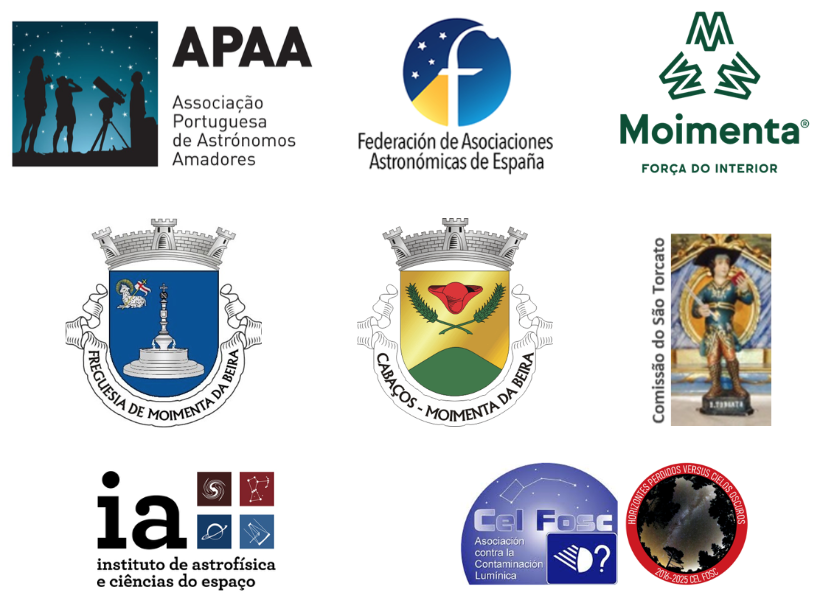Professional
Community
Networking
Hub Activities
Industry
& Stakeholders
Scientific
Conferences
Join
Europlanet Society
Planetary Sciences
in Spain and Portugal
Facilities
Ground Based Telescopes
Space
Exploration
Amateur
Community
Outreach
Activities
Nodo Ibérico Europlanet
O principal objectivo do Nodo Ibérico da Europlanet Society é apoiar e promover a investigação planetária e o desenvolvimento tecnológico espacial no seio da comunidade científica planetária espanhola e portuguesa, con mais de 400 membros, em colaboração com agências espaciais, reforçando a visibilidade e a participação de cientistas e engenheiros em programas de investigação a nível nacional e internacional.
Comunidade científica planetária espanhola e portuguesa

A Europlanet Society é uma associação internacional que visa promover as ciências planetárias, a exploração do sistema solar e qualquer outro campo relacionado em benefício da comunidade da ciência e tecnologia planetária, incentivando a criação de novos conhecimentos, promovendo a educação, estimulando a inovação e melhorar a acessibilidade e a transparência. A Sociedade é a entidade controladora do Europlanet Scientific Congress (EPSC), o maior encontro anual sobre ciência planetária na Europa.
Del 8 al 13 de septiembre - Berlín
Jordi Camarasa, um astrônomo amador espanhol, co-descobriu um cometa em 5 de novembro de 2023 no observatório remoto “Moonbase” localizado na Namíbia, um observatório que ele compartilha com seu colega polonês Grzegorz Duszanowicz. Ambos os astrônomos têm colaborado juntos no Projeto Comet and Neo Searching desde 2022.
O novo cometa, confirmado pelo Minor Planet Center, recebeu a designação C/2023 V4 (Camarasa-Duszanowicz). Por sorte, Jordi foi o primeiro a detectá-lo e denunciá-lo ao MPC, daí seu nome ser o primeiro no nome.
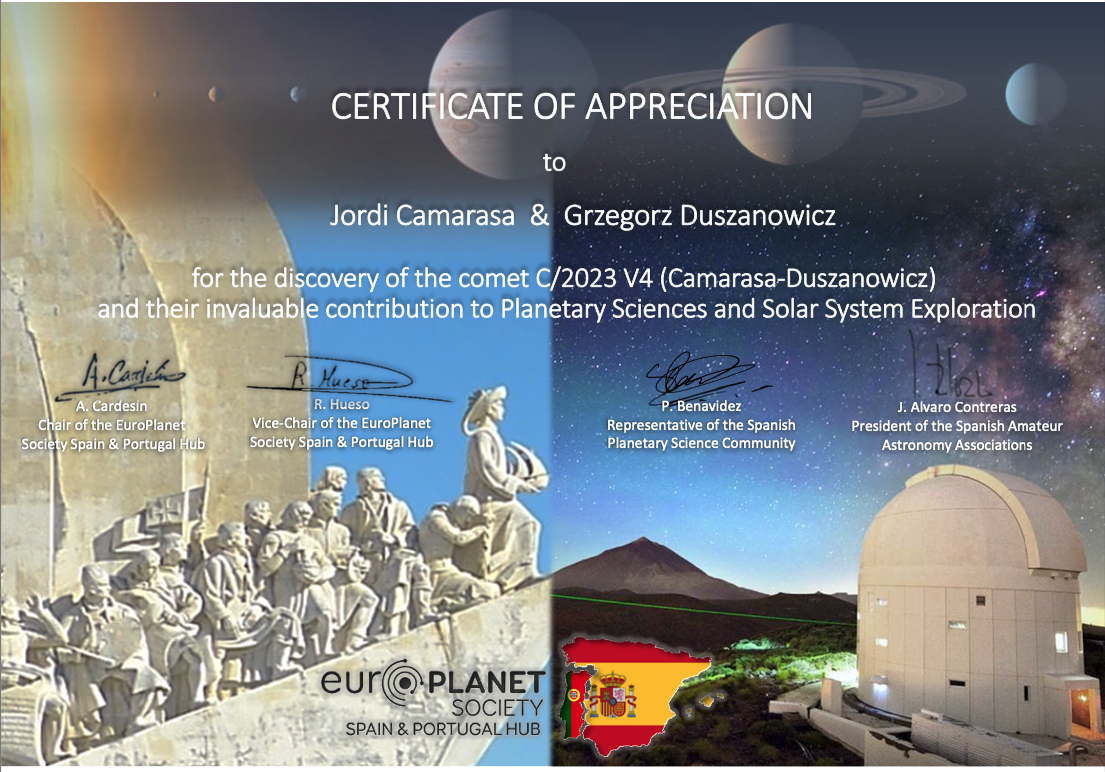
O Europlanet Iberian Hub tem o orgulho de anunciar os vencedores dos primeiros prémios de jovens cientistas planetários em Espanha e Portugal:
Prémio "Abraham Zacut"
|
|
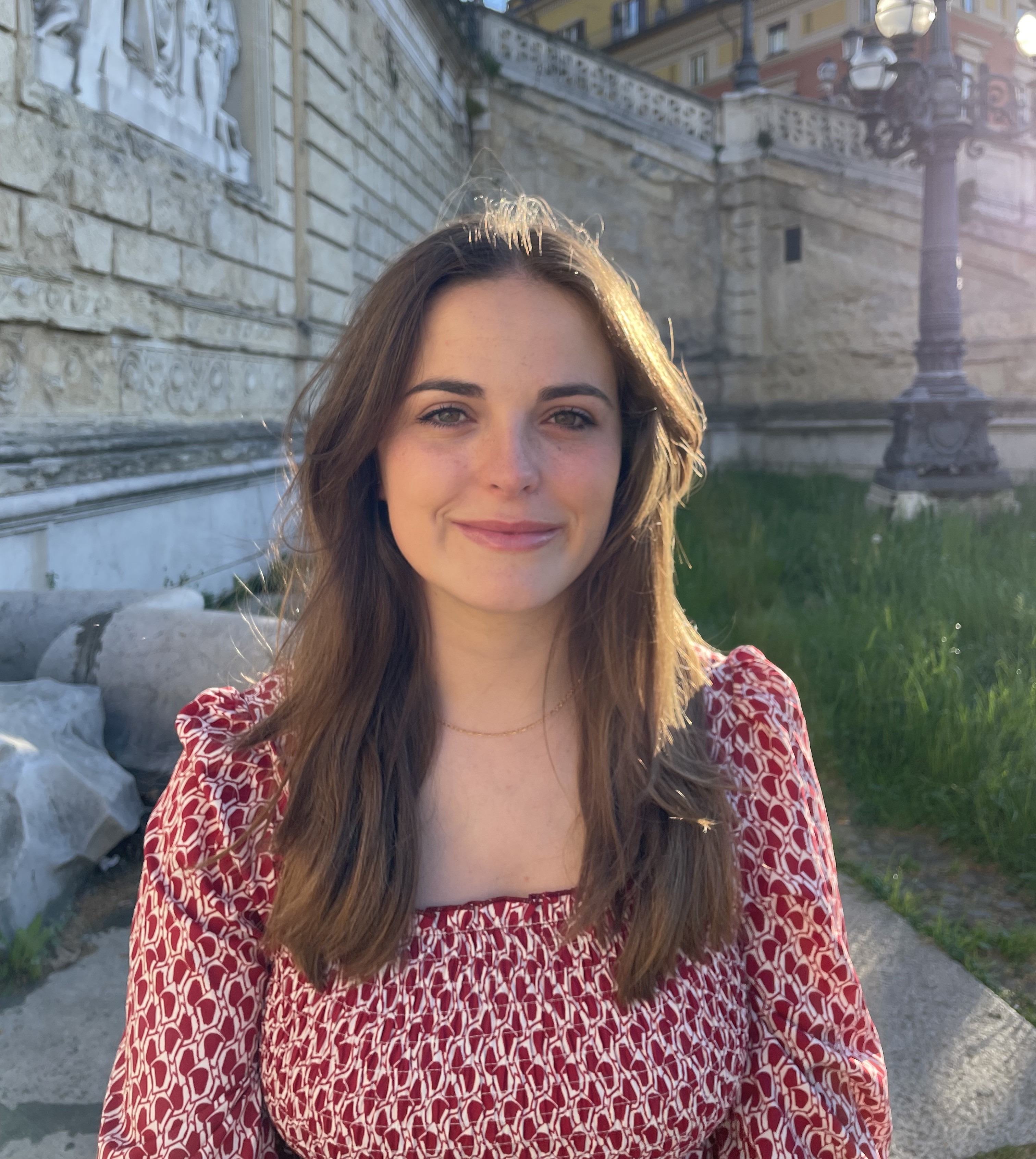 |
|
Prémio "Pedro Nunes"
|
|
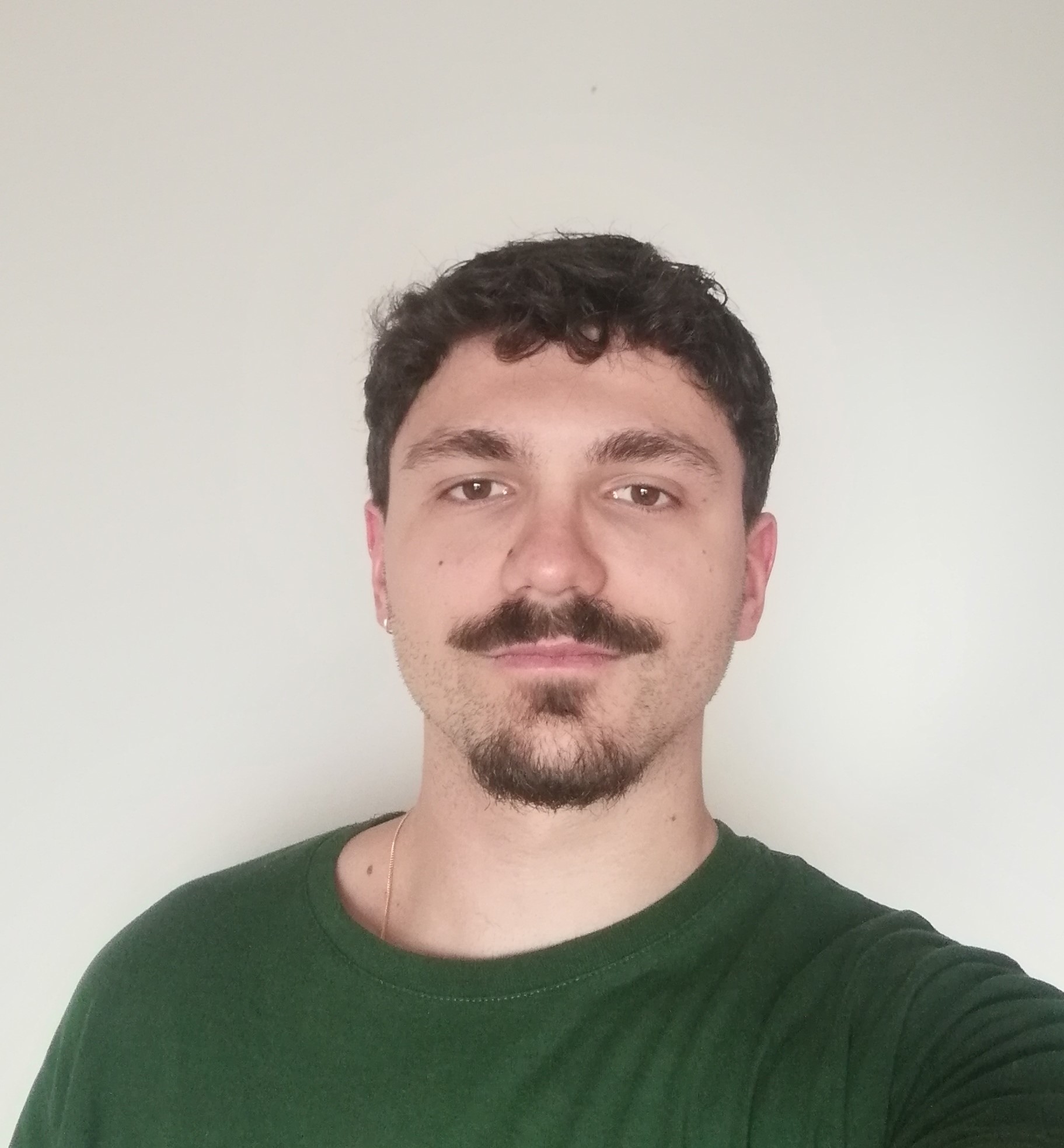 |
|
Estes prémios têm o nome de astrónomos históricos de Espanha e Portugal, modelos de colaboração ibérica que viveram e trabalharam em ambos os países. As suas contribuições astronómicas e instrumentais desempenharam um papel fundamental na era da navegação marítima e permitiram descobertas históricas de importância planetária.
Agradecemos a todos os candidatos pela sua participação e pela elevada qualidade dos trabalhos apresentados neste concurso, que esperamos sirva de motivação para a nova geração de cientistas e engenheiros planetários em Espanha e Portugal.
O principal objectivo do Nodo Ibérico da Europlanet Society é apoiar e promover a investigação planetária e o desenvolvimento tecnológico espacial no seio da comunidade científica planetária espanhola e portuguesa, con mais de 400 membros, em colaboração com agências espaciais, reforçando a visibilidade e a participação de cientistas e engenheiros. em programas de investigação a nível nacional e internacional.
A Comissão de Coordenação do Nodo Ibérico Europlaneta é constituída por vários perfis de diversas instituições:
- Presidente: A. Cardesín Moinelo (ESAC)
- Vice-Presidentes: R. Hueso (UPV) / P. Machado (IA-Lisboa)
- Secretário: S. Fernández Menéndez (UniOvi)
- Representante do Conselho de Administração da EPS: J. De León (IAC)
- Representante do EPS-Research Infrastructure: F. Gómez-Gómez (CAB)
- Representante de Espanha: P. Benavides (UA)
- Juventude ES: D. Morate (CEFCA)
- Política Espacial ES: C. García Sacristán (AEE)
- Indústria Espacial ES: A. Catalán (PAE)
- Divulgação e comunicação ES: J. Á. Vaquerizo (ISDEFE)
- Representante de Portugal: P. Machado (IA-Lisboa)
- Juventude PT: D. Espadinha (IA Lisboa)
- Política Espacial e Indústria PT: M. Gonçalves (PT Espaço, Lisboa)
- Divulgação e comunicação PT: J. Retre (IA, Lisboa)
- Comunidade Amateur: J. Álvaro (FAAE/AstroCuenca)
- Diversidade: L. Parro (UA) / M. Ruiz-Pérez (CAB)
- Ética Espacial: S. Pérez-Hoyos / J. Hdez-Bernal (UPV)
- Instrumentação e Tecnologia: A. Morales-Inza (INTA)
- Ibero-América: P. Benavides, A. Cardesin, R. Duffard, D. Morate
Contacto: spainportugal (at) europlanet-society.org



